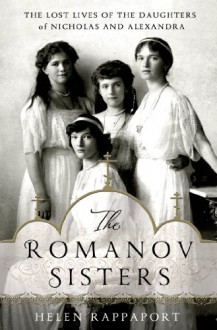Top Seven:
Autobiography by Morrissey
This book gets the #1 spot even though actually I haven’t finished it yet. I figure you can only read a book for the first time once and I want to savor it. My girlfriend keeps all three copies we own locked in a trunk so that I won’t tear through it.

It is so rare that I can include human interest in this list! My girlfriend reads one copy while the other lies in readiness.
Turn Around Bright Eyes by Rob Sheffield
I wrote a long review here. This is a memoir about karaoke and true love.
Ziggyology: A Brief History of Ziggy Stardust by Simon Goddard
The author has some odd ideas, and the first 90 pages are about kabuki theater and the origin of the universe, but this is a really cool book. The conceit is that David Bowie’s Ziggy Stardust persona was like a real person taking over Bowie’s life. There are a lot of crazy coincidences that will blow your mind. My favorite parts were 1) when Bowie finally saw the Velvet Underground live and then met Lou Reed but it turned out it wasn’t really Lou Reed at all 2) everything about Marc Bolan; he is presented as David Bowie’s doppelganger who is trying to sabotage him. Also there are some very nice photos, and the book design is gorgeous.

The cover


Wired Up: Glam, Proto Punk & Bubblegum European Picture Sleeves 1970-1976. ed by Mary Blount and Jeremy Thompson
A collection of insanely cool &/or indescribably weird ‘70s album covers, beautifully laid out art-book style. The pages open flat. There are some interesting short essays and interviews too. A few well-known bands are included, but the criteria is just distinctive European album cover art from a time when people would buy records based on what the sleeve looked like. My girlfriend gave me this book for Chuannukah which was great because it was something I really wanted but never would have gotten for myself.
So my girlfriend has learned how to have lucid dreams, and the next frontier is for me to mentally send her a picture while she is sleeping, which we both know is impossible but it’s fun to try. I used an image from this book for one of the pictures. This practice is very restful for me because when I wake up in the middle of the night instead of worrying about one thing and another, I can just think, “Red background, two glam Asian girls with long hair in kimono-style minidresses and silver knee high go go boots, Ride Captain Ride.” Then sometimes I fall right back to sleep.

Bowie: Album by Album by Paolo Hewitt
I debated with myself over whether or not to include this because I haven’t really read it yet, just looked at the pictures, so I wasn’t sure if it counted as a book I’ve read. Last year I didn’t include David Bowie Styles in my Best of 2012 because I only looked at the pictures. But I decided that I did read this in a coffee-table-book kind of way, even though this is more than a coffee table book. It’s just lovely.

Calling Dr. Laura by Nicole Georges
Fun, touching, lesbian, Portlandish graphic novel about a young woman finding out that her father is alive even though her mother said he was dead.
The Lost Daughter by Mary Williams
A memoir about growing up poor in a chaotic, neglectful family while her Black Panther father was imprisoned. One bright spot was going to a posh summer camp run by Jane Fonda. Mary confided in Jane Fonda about how she had been sexually assaulted, and Jane Fonda adopted her (in every sense except legally.) Mary had many adventures including working in Antarctica and running a non-profit for Sudanese “lost boys,” and then finally reconnected with her biological family. I felt there was something missing, a sense of the writer being able to sum up her whole life so far and say what it was all about, but I didn’t really care because it was interesting.

What Else?
Walden on Wheels: On the Open Road From Debt to Freedom by Ken Ilgunas
Kid pays off his college debt in three years by working in grim conditions in Alaska, then decides he can get through grad school with no debt if he lives in his van, and learns what freedom and autonomy really are.
After Visiting Friends by Michael Hainey
There was always some mystery surrounding Hainey’s father’s death, so Hainey finally decided to use his journalistic skills to uncover the truth.
American Savage: Insights, Slights, and Fights on Faith, Sex, Love, and Politics by Dan Savage
You don’t have to agree with Dan Savage on everything to like this book. The parts that I remember best are when he has the head of the National Organization for Marriage over to his house for dinner so he can debate him, and the heartbreaking part when his mom dies.
Next Up: my favorite part! Best of 1913, and bonus 1813 and 2113!


 Log in with Facebook
Log in with Facebook 





















